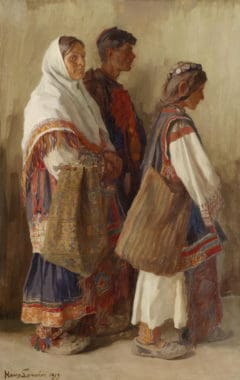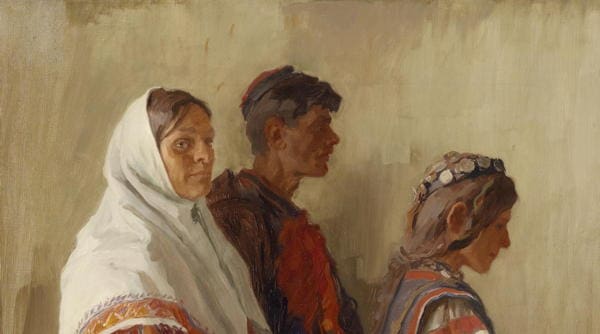Of Having a Humble Opinion of Ourselves*
Editor’s Note: Last Friday, we celebrated the Solemnity of the Sacred Heart of Jesus. The featured post that day “Learn from Me – The Most Sacred Heart of Jesus” reflected on Christ’s command to learn from Him and His meek and humble heart. Along that line, this selection from The Imitation of Christ considers the type of humble opinion we should have of ourselves.
 1. All men naturally desire knowledge; but what availeth knowledge without the fear of God? [cf Mark 8:36]. Surely a humble peasant, who serves God, is better than a proud philosopher who, to the neglect of Him, studies the course of the heavens. Who so knoweth himself, is lowly in his own eyes, and delighteth not in the praises of men.
1. All men naturally desire knowledge; but what availeth knowledge without the fear of God? [cf Mark 8:36]. Surely a humble peasant, who serves God, is better than a proud philosopher who, to the neglect of Him, studies the course of the heavens. Who so knoweth himself, is lowly in his own eyes, and delighteth not in the praises of men.
If I understood all things in the world and had not charity, what would that avail me in the sight of God [cf 1 Corinthians 13:2], Who will judge me according to my deeds?
2. Cease from an inordinate desire for knowledge, for therein is much distraction and deceit. Learned men are anxious to be esteemed learned by others, and to be called wise. There are many things the knowledge of which doth little or nothing profit the soul. And, he is very unwise who minds such things rather than those that tend to his salvation. Many words do not satisfy the soul; but a good life comforteth the mind, a pure conscience giveth great confidence in God.
3. The more and the better thou knowest and understandest, the more strictly wilt thou be judged, unless thy life be also more holy. Be not, therefore, puffed up because of any art or science, but rather let the knowledge given thee make thee more cautious.
If thou thinkest that thou understandest and knowest much; yet know that there be many more things which though knowest not. Affect not to be overwise, but rather acknowledge thine own ignorance.
Why wilt thou prefer thyself before others, seeing there be many more learned, and more skillful in the Scripture than thyself? If thou wilt know or learn anything profitably, desire to be unknown, and little-esteemed (Click here for the Litany of Humility).
4. The highest and most profitable lesson is the true knowledge of ourselves. To think nothing of ourselves, and to think always well and highly of others, is great wisdom and perfection.
If thou shouldest see another openly sin, or commit some heinous offense, yet oughtest thou not to esteem thyself better; for thou knowest not how long thou mayest be able to stand. We are all frail, but esteem no one more frail than thyself.
 +
+
* From The Imitation of Christ by Thomas à Kempis published by James Finch and Co, Ltd, London, 1901.
+
Art: Slovakian Farmers, Hans Larwin, 1913, PD-US published before January 1, 1923; Thomas von Kampen (Thomas à Kempis) 1380-1431, artist unknown, PD-US copyright expired; both Wikimedia Commons.




